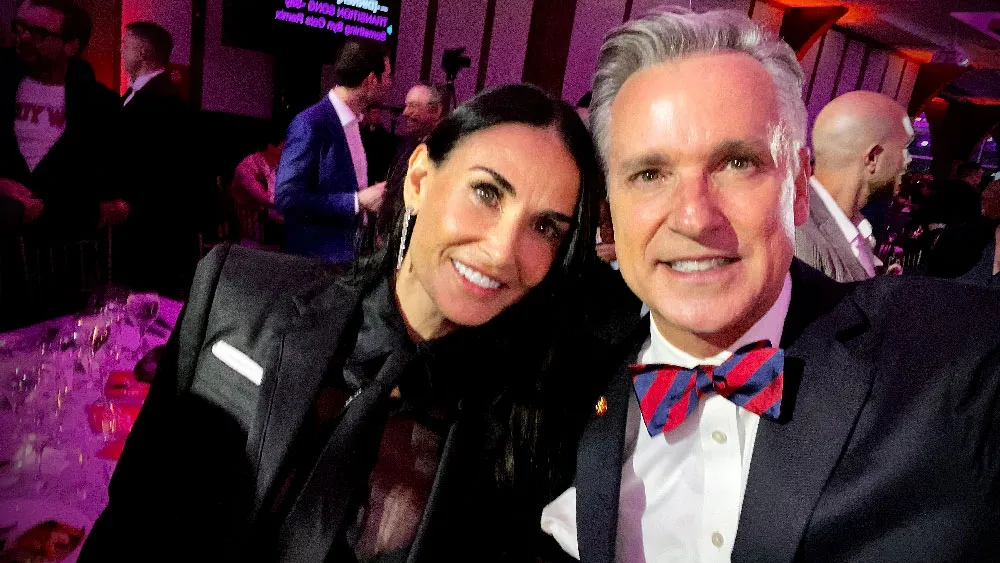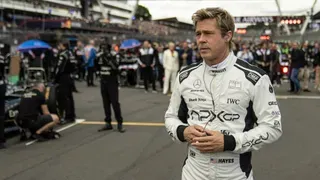June 28, 2013
Boston Gaymers Play Hard in A Safe Space
Daniel M. Kimmel READ TIME: 5 MIN.
For people facing real physical or emotional violence in their lives, discrimination is no laughing matter. It is deadly serious and deserves to be treated as such. Ironically, for a group that faces discrimination of a much milder kind, escaping into a world of fantasy violence is often the answer. It's one of several paradoxes one encounters when entering the world of gay gamers, or "gaymers."
Although anyone who plays chess or poker is technically engaging in "gaming," it has taken on a particular meaning in today's world: those who play out elaborate scenarios on their home video systems or computers or take on alternate identities in a role-playing game (RPG). Many of these games have science fiction or fantasy elements, yet in the science fiction world, gamers have only slowly been accepted into the mainstream.
Likewise in LGBTQ communities, the mostly young and mostly male gamers have been treated like that crazy aunt who may be invited to Thanksgiving dinner, but is otherwise rarely referred to in public.
Kevin Bryant is among those who is hoping to change the rules of the game. He's formed "Boston Gaymers," a social group where like-minded people can get together to socialize, play games, or simply network. "I originally had the intention to have a social platform for people," he said. "I want the group to be as inclusive as possible."
For those outside of the gaming world it may be surprising just how diverse it can be. Indeed, it can be as diverse as the interests of the players. While some gaymers are attracted to the violent shooting games that are popular among gamers in general, there are differences as well.
"The games they tend to be attracted to are Japanese RPGS," Bryant explained. "The Japanese think of gender in different ways as opposed to [the traditional shooting game] 'Call of Duty.' Instead of the big masculine he-man as the hero you see someone with softer features."
There are social gatherings of gaymers in many cities around the country, and this Aug. 3-4 will see GaymerX held in San Francisco. According to their website the event will provide "a safe space for queer geeks and their friends to come together, discuss queer theory in games as a community, and party as one."
Kayce Brown, co-chair of the event, held the first such event last year. "We knew we had an audience, but we didn't know how many."
Brown said last year's convention attracted 3000 registered guests plus some who attended on day passes. "There are a large number of women. We're going to see a lot of women and transsexual attendants."
If the LGBTQ community doesn't quite know what to make of those who enjoy games like "Final Fantasy" or "Dungeons and Dragons," there are some elements in the gaming community who react negatively to gay participants. Explained Brown, "There's a lot of homophobia."
In some general gaming forums trash talking one's opponents is considered part of the game and racist, sexist, and homophobic comments abound. It's not reflective of gaming as a whole, but it's out there. Thus creating a safe gaming enclave for gaymers seems like a natural outgrowth of the expanding interest in games.
Bryant, who grew up in the Midwest, notes that it's much easier being out in Massachusetts, but gaming is an outlet that works anywhere. "It's a good escape from being told you can't do things."
Gaymers who want to find an online community of like-minded people can go to http://gaymerconnect.com, where they will find links to GaymerX as well as discussion boards and leads to groups and get-togethers that may exist in their own area.
Bryant noted that was how his Boston meet-ups started. "No one else would do it," he recalled. He suggested that his fellow Boston area gaymers meet and it was a success. "I think there's a stereotype that younger guys like to party and drink. I didn't want to do that. I'd rather be on my Nintendo than go to House of Blues."
From the other side of the divide the people creating the games are only starting to realize that gaymers are a significant part of the audience for their products. "Games are starting to come out with gay characters," said Brown. "It's something we've been fighting for."
The website reports, for example, that the fourth entry in the "Saints Row" video game will allow for the possibility of characters to enter into gay romances. They quote Steve Jaros, the creative director for the game, as noting "[W]hen you're a game about player choice we want to go and celebrate whatever choices people want to make. We definitely want to make sure that we gave appropriate options for people... I'm actually really excited about that."
As with any group of gamers, the gaymers are drawn to a wide variety of play. Some even engage in what is known as "cosplay," a shorthand for a role-playing game where you dress in the costume of your character. For those drawn to that particular form of gaming, said Bryant, "The weirder you are, the cooler you are." That's what it's really about: Finding a way to be comfortable with who you are and what you like to do.
For those just dipping their toe into socializing with other gaymers, be aware that it can be a recapitulation of the experience of coming out. After the initial nervousness it's the discovery that you're not alone and that being different is okay. Said Bryant, "The bulk of it is just hanging out. It's kind of comforting to have people with similar interests."
In an echo of the classic chant at Gay Pride events he adds, "We're here. And we like playing video games." And board games, and RPGs, and...
Film critic and author Daniel M. Kimmel has written several books including his most recent, "Shh! It's a Secret: A Novel About Aliens, Hollywood, and the Bartender's Guide."



